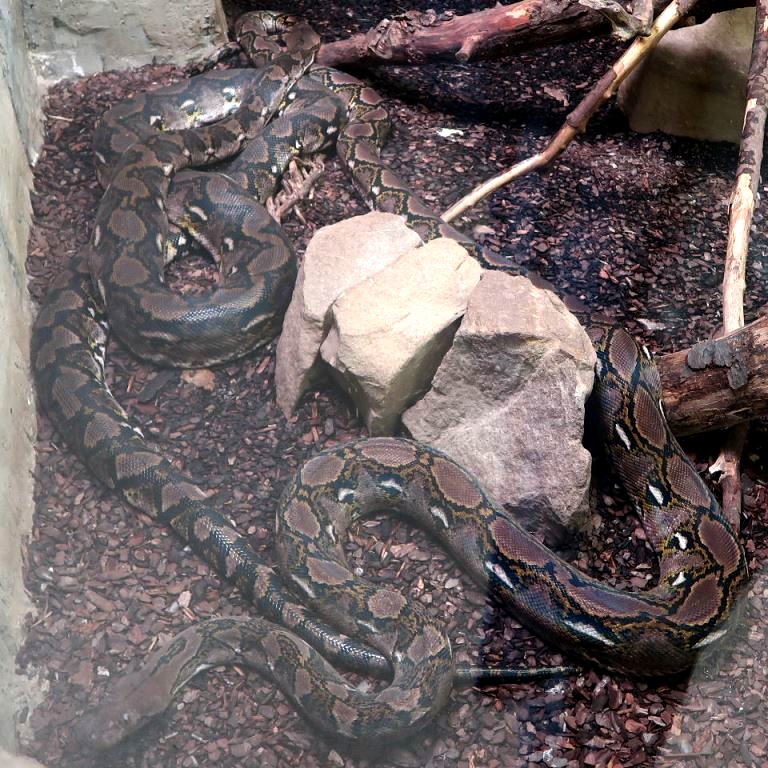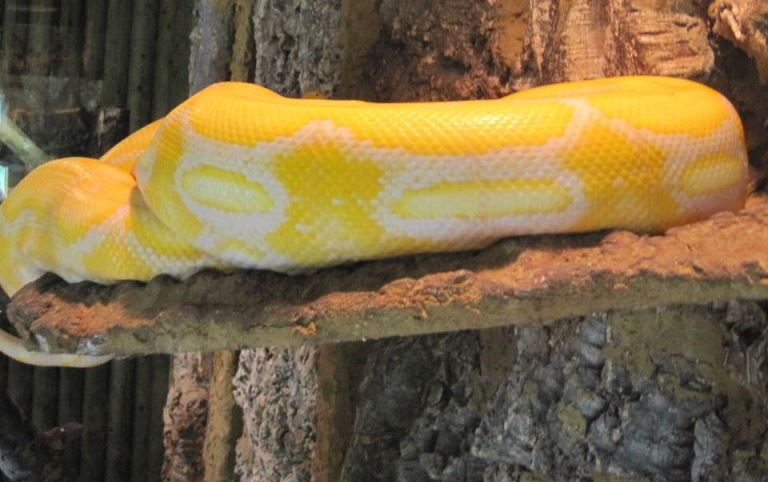Reticulated Python Malayopython/Broghammerus/Python reticulatus


The Reticulated Python is native to much of Southeast Asia and some of South Asia.
The name "reticulated" means netted and refers to the diamond-shaped patterns which provide good camouflage.


It is the world's longest snake, reaching over 25 feet (7.5 metres) and reportedly, exceptionally,
up to 30 feet (9 metres), but not the largest snake, which is the bulkier, heavier Anaconda.
It is also one of the most attractive for its patterns and irridescent colours.



Pythons are not venomous but strangle and suffocate their prey by curling their body round the victim
and squeezing so that the victim cannot breathe in.



Diet is initially mainly small mammals (rodents) and later medium-sized mammals such as wild pigs, deer,
dogs, goats, civets and binturongs plus waterfowl. There have been occasional reports of them eating humans, including adults.



Pattern and colour vary and aberrant and leucistic/amelanistic forms are found, especially when bred in captivity.



Leucistic and aberrant forms.



It can live for some 30 years and swims well, including in the sea. Threats include habitat loss
and hunting for skins which make attractive leather products.

